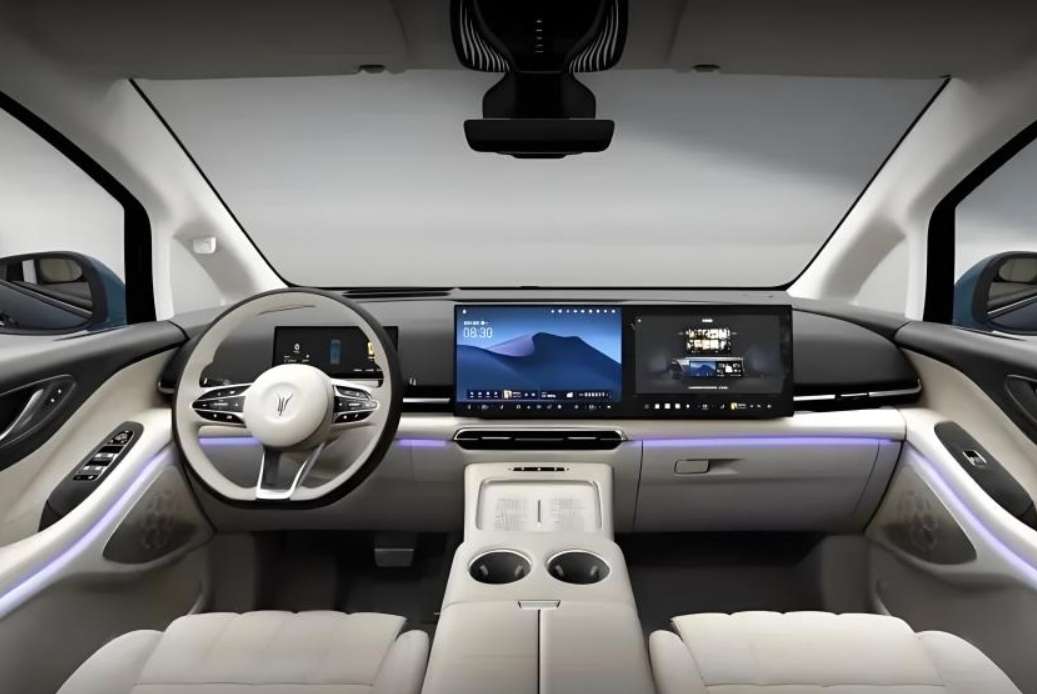BYD's Smart Transformation Redeemed
Advertisements
In the fast-evolving realm of the automotive industry, a significant wave has emerged, driven by the rapid advancement of artificial intelligence technologies, particularly through platforms like DeepSeek. As automotive manufacturers scramble to adapt, a trend has developed wherein companies are eagerly onboard this innovative AI framework to enhance their vehicles' capabilities. The landscape is changing dramatically, reflecting a larger shift toward sophisticated technological integration in cars, emphasizing the importance of user experience and automation.
Leading this charge is BYD, a titan in the electric vehicle market, which has also garnered attention for a proactive price reduction strategy. The company has taken bold steps to fully implement DeepSeek's "standardization," signaling a commitment to democratizing intelligent driving capabilities for a broader consumer base. When it comes to advanced technology, BYD is no longer alone; traditional manufacturers like Geely and Changan, as well as newer players like Leap Motor and Zhiji, have embraced DeepSeek to enhance their offerings, focusing on improving the in-car experience significantly.
Interestingly, the story doesn't end there. Despite their internal competition, tech giants such as Tencent, Alibaba, and Baidu have also aligned themselves with DeepSeek, revealing a remarkable level of collaboration in an industry often characterized by fierce rivalries. Such convergence hints at an emerging consensus among automotive businesses regarding the critical role AI will play in reshaping their future.
DeepSeek's appeal lies not only in its established reputation but also in its ability to optimize computational resources. This feature becomes particularly valuable to automotive manufacturers aiming to equip vehicles with intelligent systems without incurring excessive costs. The integration of AI enhances not only the driving experience but also the functionality of smart cabins where users can interact more seamlessly with their vehicles. For instance, Geely has reported that the deep learning capabilities of DeepSeek enable their onboard AI to accurately interpret user intentions and interface with approximately 2,000 vehicle control systems, resulting in a vastly improved interaction experience.

In this evolution, the consumer experience becomes paramount. Users are no longer mere passengers but rather engaged participants in a dialogue with their vehicles. This shift was highlighted by Lantu Motors' CEO, Lu Fang, who noted that with DeepSeek, the relationship between users and the vehicle is transforming into a more conversational, friendly exchange rather than one of command and execution. This profound change in user engagement is reminiscent of contemporary digital communication trends, where personalization and interactivity take center stage.
As the quest for intelligence in vehicles expands, it bears mentioning that this wave of AI integration goes beyond creating intuitive driving experiences. There exists a pressing need for these advancements to flow into the broader realm of autonomous driving, with a strong emphasis on improving safety and operational efficiency. The notion of fully autonomous vehicles operating at Level 4 and beyond is becoming more tangible with each passing day, and companies are racing to develop systems that will facilitate this leap.
However, a consideration of the economic fundamentals of this industry reveals that introducing advanced technologies cannot come without cost. While companies strive to implement deeper AI integrations, a broader price war continues to shape the market. The automotive sector has found itself embroiled in fierce price competition, leading major players to continually reassess their pricing strategies. Such strategies include offering advanced autonomous driving features to distinguish themselves, rather than holding onto older models designed for lower price points.
The 2024 automotive market in China showcased a staggering number of price reductions across various models, with electric vehicles seeing significant cuts. In a landscape where affordability remains crucial, BYD stands out as a resilient leader, adept at utilizing its competitive advantages in battery technology to maintain a robust market presence even amidst aggressive pricing strategies from rivals like Tesla and XPeng.
Traditional automotive firms face ongoing pressure to enhance their value propositions, especially as newer companies enter the fray with advanced driving features and propositions centered around smart technology. Manufacturers like NIO and Huawei actively promote their AI capabilities, recognizing that merely competing on price is insufficient when consumer expectations are skyrocketing.
As the landscape evolves, the growing prominence of AI in intelligent driving systems forces all participants to reconsider their strategies. The advent of large language models, such as those from DeepSeek, challenges the notion that superior technological prowess alone can ensure market dominance. Instead, the competition is rapidly becoming a battle of algorithms, data, and the ability to create meaningful user experiences through seamless technology integration.
But even as DeepSeek enters the fray, the adoption of its technology does not guarantee any company a significant advantage. For traditional automotive players deeply invested in their proprietary technologies, migrating to an AI framework like DeepSeek requires significant adjustments. The transition involves not just deploying the technology but ensuring it can effectively manage and interpret various types of data, such as text, audio, and images—all while maintaining consistent operational stability.
This reality points to a complex and sometimes uneven playing field, where mature and emerging companies alike grapple with the challenges of AI integration. In this ever-changing environment, the question remains: Can AI truly alleviate the relentless price wars and create a sustainable business model for the industry? The answer lies not solely in technology but in how these advancements translate into genuine value for consumers.
Ultimately, the road ahead for the automotive sector is not simply about embracing innovation for the sake of advancement. It involves seeking a balance between maintaining affordability and delivering cutting-edge technology that genuinely enhances the driving experience. As BYD and others navigate these waters, the marriage of AI advancements with practical, consumer-focused developments will be critical in determining who leads the market going forward. By focusing on enhancing the user experience through intelligent and responsive systems, automakers can emerge from the price wars with a renewed sense of purpose and direction, carving out a pathway toward a more sustainable future in transportation.
Post Comment